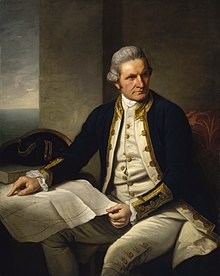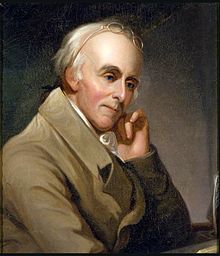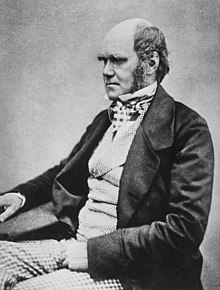April 19 is the 109th day of the year (110th in leap years) in the Gregorian calendar. There are 256 days remaining until the end of the year.
- Christian feast day:
In AD 65, The freedman Milichus betrayed Piso’s plot to kill the Emperor Nero and all the conspirators are arrested.
In 531, Battle of Callinicum: A Byzantine army under Belisarius is defeated by the Persian at Ar-Raqqah (northern Syria).
In 1012, Martyrdom of Ælfheah in Greenwich, London.
Donnchadh (Duncan), Earl of Carrick (died 1250), was a Gall-Gaidhil prince and one of the longest serving magnates in medieval Scotland. His father, Gille-Brighde of Galloway, and his uncle, Uhtred of Galloway, were the two rival sons of Fergus, Lord of Galloway. As a result of Gille-Brighde’s conflict with Uhtred and the Scottish monarch William the Lion, Donnchadh became a hostage of King Henry II of England. He probably remained in England for almost a decade before returning north on the death of his father. Although denied succession over all the lands of Galloway, he was granted lordship over Carrick in the north. Allied to John de Courcy, Donnchadh fought battles in Ireland, acquiring and losing land there. A patron of religious houses, particularly Melrose Abbey and North Berwick priory nunnery, he attempted to establish a monastery in his own territory, at Crossraguel. He married the daughter of Alan fitz Walter, a leading member of the family later known as the House of Stewart—future monarchs of Scotland and England. His descendants include the Bruce, the Stewart Kings of Scotland, and probably the Campbell Dukes of Argyll.
In 1529, Beginning of the Protestant Reformation: The Second Diet of Speyer bans Lutheranism; a group of rulers (German: Fürst) and independent cities (German: Reichsstadt) protests the reinstatement of the Edict of Worms.
In 1539, Charles V and Protestants signs Treaty of Frankfurt.
In 1587, English admiral Sir Francis Drake entered Cadiz harbor and sank the Spanish fleet, an action he referred to as “singeing the king of Spain’s beard.” He destroyed 37 naval and merchant ships. The attack delayed the Spanish invasion by a year.

In 1677, The French army captures the town of Cambrai held by Spanish troops.
In 1713, With no living male heirs, Charles VI, Holy Roman Emperor, issues the Pragmatic Sanction of 1713 to ensure that Habsburg lands and the Austrian throne would be inherited by his daughter, Maria Theresa of Austria (not actually born until 1717).

In 1770, Captain James Cook sights the eastern coast of what is now Australia.
In 1770, Marie Antoinette marries Louis XVI in a proxy wedding.

In 1775, American Revolutionary War: The war begins with an American victory in Concord during the battles of Lexington and Concord. The British fired the first shot heard ’round the world which began the war with the battles of Lexington & Concord; the British heading to Concord engage in a battle with 70 Minutemen.
In 1782, John Adams secures the Dutch Republic‘s recognition of the United States as an independent government. The house which he had purchased in The Hague, Netherlands becomes the first American embassy.
In 1809, An Austrian corps is defeated by the forces of the Duchy of Warsaw in the Battle of Raszyn, part of the struggles of the Fifth Coalition. On the same day the Austrian main army is defeated by a First French Empire Corps led by Louis-Nicolas Davout at the Battle of Teugen-Hausen in Bavaria, part of a four-day campaign that ended in a French victory.
In 1810, Venezuela achieves home rule: Vicente Emparan, Governor of the Captaincy General is removed by the people of Caracas and a junta is installed.
In 1813, Benjamin Rush, American physician and educator (b. 1745) dies. He was a Founding Father of the United States. Rush lived in the state of Pennsylvania and was a physician, writer, educator, humanitarian, as well as the founder of Dickinson College in Carlisle, Pennsylvania. Rush signed the Declaration of Independence and attended the Continental Congress. He served as Surgeon General in the Continental army, and was blamed for criticising George Washington. Later in life, Rush became a professor of chemistry, medical theory, and clinical practice at the University of Pennsylvania. Rush was a leader of the American Enlightenment, and an enthusiastic supporter of the American Revolution. He signed the Declaration of Independence, and was a leader in Pennsylvania’s ratification of the Constitution in 1788. He was prominent in many reforms, especially in the areas of medicine and education. He opposed slavery, advocated free public schools, and sought improved education for women and a more enlightened penal system. As a leading physician, Rush had a major impact on the emerging medical profession. As an Enlightenment intellectual, he was committed to organizing all medical knowledge around explanatory theories, rather than rely on empirical methods. Rush argued that illness was the result of imbalances in the body’s physical system and was caused by malfunctions in the brain. His approach prepared the way for later medical research, but Rush himself undertook none of it. He promoted public health by advocating clean environment and stressing the importance of personal and military hygiene. His study of mental disorder made him one of the founders of American psychiatry.

In 1824, Lord Byron, English-Scottish poet (b. 1788) dies of infection. He was commonly known simply as Lord Byron, was an English poet and a leading figure in the Romantic movement. Among Byron’s best-known works are the lengthy narrative poems Don Juan and Childe Harold’s Pilgrimage and the short lyric She Walks in Beauty. He is regarded as one of the greatest British poets and remains widely read and influential. He travelled all over Europe especially in Italy where he lived for seven years and then joined the Greek War of Independence fighting the Ottoman Empire, for which Greeks revere him as a national hero. He died one year later at age 36 from a fever contracted while in Missolonghi in Greece. Often described as the most flamboyant and notorious of the major Romantics, Byron was celebrated in life for aristocratic excesses, including huge debts, numerous love affairs with both sexes, rumours of a scandalous incestuous liaison with his half-sister, and self-imposed exile
In 1839, The Treaty of London establishes Belgium as a kingdom and guaranteeing its neutrality.
In 1850, The Clayton-Bulwer Treaty between the U.S. and Great Britain is signed, and the U.S. agrees to joint control of any canal built in Panama.
In 1855, Visit of Napoleon III to Guildhall, London
In 1861, American Civil War: Baltimore riot of 1861: A pro-Secession mob in Baltimore, Maryland, attacks United States Army troops marching through the city.
In 1861, President Lincoln issues a Proclamation of Blockade against Southern ports. For the duration of the war the blockade limits the ability of the rural South to stay well supplied in its war against the industrialized North.
In 1871, California Historical Society founded.
In 1882, Charles Darwin, English biologist and theorist (b. 1809) dies. He was an English naturalist and geologist, best known for his contributions to evolutionary theory. He established that all species of life have descended over time from common ancestors, and in a joint publication with Alfred Russel Wallace introduced his scientific theory that this branching pattern of evolution resulted from a process that he called natural selection, in which the struggle for existence has a similar effect to the artificial selection involved in selective breeding. Darwin published his theory of evolution with compelling evidence in his 1859 book On the Origin of Species, overcoming scientific rejection of earlier concepts of transmutation of species. By the 1870s the scientific community and much of the general public had accepted evolution as a fact. However, many favoured competing explanations and it was not until the emergence of the modern evolutionary synthesis from the 1930s to the 1950s that a broad consensus developed in which natural selection was the basic mechanism of evolution. In modified form, Darwin’s scientific discovery is the unifying theory of the life sciences, explaining the diversity of life.
In 1892, Charles Duryea claims to have driven the first automobile in the United States, in Springfield, Massachusetts.
In 1897, Léo Taxil exposes his own fabrications concerning Freemasonry
In 1898, Congress passed a resolution recognizing Cuban independence and demanding that Spain relinquish authority over Cuba. President McKinley was also authorized to use military force to put the resolution into effect.
In 1903, The Kishinev pogrom in Kishinev (Bessarabia) begins, forcing tens of thousands of Jews to later seek refuge in Palestine and the Western world.
In 1919, Leslie Irvin of the United States makes the first successful voluntary free-fall parachute jump using a new kind of self-contained parachute.
In 1927, Mae West is sentenced to ten days in jail for obscenity for her play Sex.
In 1928, The 125th and final fascicle of the Oxford English Dictionary is published.
In 1942, World War II: In Poland, the Majdan-Tatarski ghetto is established, situated between the Lublin Ghetto and a Majdanek subcamp.
In 1943, World War II: In Poland, the Warsaw Ghetto Uprising begins, after German troops enter the Warsaw ghetto to round up the remaining Jews.
In 1945, Diplomatic relations between the Soviet Union and Guatemala are established.[citation needed]
In 1948, Burma joins the United Nations.
In 1950, Argentina becomes a signatory to the Buenos Aires copyright treaty.
In 1951, General Douglas MacArthur retires from the military. In his address to Congress, MacArthur, quoted a line from a ballad: “Old soldiers never die; they just fade away.” He then added, “I now close my military career and just fade away”.
In 1954, The Constituent Assembly of Pakistan recognises Urdu and Bengali as the national languages of Pakistan.

In 1956, Actress Grace Kelly marries Prince Rainier of Monaco.
In 1960, Students in South Korea hold a nationwide pro-democracy protest against president Syngman Rhee, eventually forcing him to resign.
In 1971, Sierra Leone becomes a republic, and Siaka Stevens the president.
In 1971 – Vietnam War: Vietnam Veterans Against the War begin a five-day demonstration in Washington, D.C..
In 1971 – Launch of Salyut 1, the first space station.
In 1971 – Charles Manson is sentenced to death (later commuted life imprisonment) for conspiracy to commit the Tate/LaBianca murders.
In 1973, The Portuguese Socialist Party is founded in the German town of Bad Münstereifel.
In 1975, India‘s first satellite, Aryabhata, is launched.
In 1984, Advance Australia Fair is proclaimed as Australia’s national anthem, and green and gold as the national colours.
In 1985, FBI siege on the compound of The Covenant, The Sword, and the Arm of the Lord (CSAL) in Arkansas.
In 1985, U.S.S.R performs nuclear tests at Eastern Kazakhstan/Semipalatinsk.
In 1987, The Simpsons premieres as a short cartoon on The Tracey Ullman Show.
In 1988, Sonny Bono is inaugurated as Mayor of Palm Springs, California.
In 1989, A gun turret explodes on the USS Iowa, killing 47 sailors.
In 1993, The 51-day siege of the Branch Davidian building outside Waco, Texas, USA, ends when a fire breaks out. The FBI decided it could wait no longer for Koresh to surrender on a weapons charge (a previous raid had left four agents dead). On April 19, six hours after tanks pounded holes in the Branch Davidian compound and pumped in tear gas, bright orange fireballs erupted and black smoke cast a dark shadow over the grounds. Agents waited for cult members to pour out of the burning buildings and were horrified when they didn’t. More than 80 members of the religious sect were killed, including Koresh and many young children. It was the apocalyptic ending Koresh had predicted for his followers. Eighty-one people die.
In 1993, South Dakota governor George Mickelson and seven others are killed when a state-owned aircraft crashes in Iowa.
In 1995, Oklahoma City bombing: The Alfred P. Murrah Federal Building in Oklahoma City, Oklahoma, USA, is bombed, killing 168.
In 1997, The Red River Flood of 1997 overwhelms the city of Grand Forks, North Dakota. Fire breaks out and spreads in downtown Grand Forks, but high water levels hamper efforts to reach the fire, leading to the destruction of 11 buildings.
In 1998, Wang Dan, a leader of the 1989 Tiananmen Square pro-democracy protests, arrived in the United States after being freed by China.
In 1999, The German Bundestag returns to Berlin, the first German parliamentary body to meet there since the Reichstag was dissolved in 1933.
In 2011, Fidel Castro resigns from the Communist Party of Cuba‘s central committee after 45 years of holding the title.
In 2013, Boston Marathon bombings suspect Tamerlan Tsarnaev is killed in a shootout with police. His brother Dzhokhar Tsarnaev is captured while hiding in a boat inside a backyard in Watertown, Massachusetts.
In 2016, The Tennessee General Assembly declared it will sue the federal government over its refugee resettlement program on Tenth Amendment grounds. The State Senate passed a resolution authorizing that lawsuit in a 29 to 4 vote one day after it passed the Tennessee House by a 69 to 25 margin.



